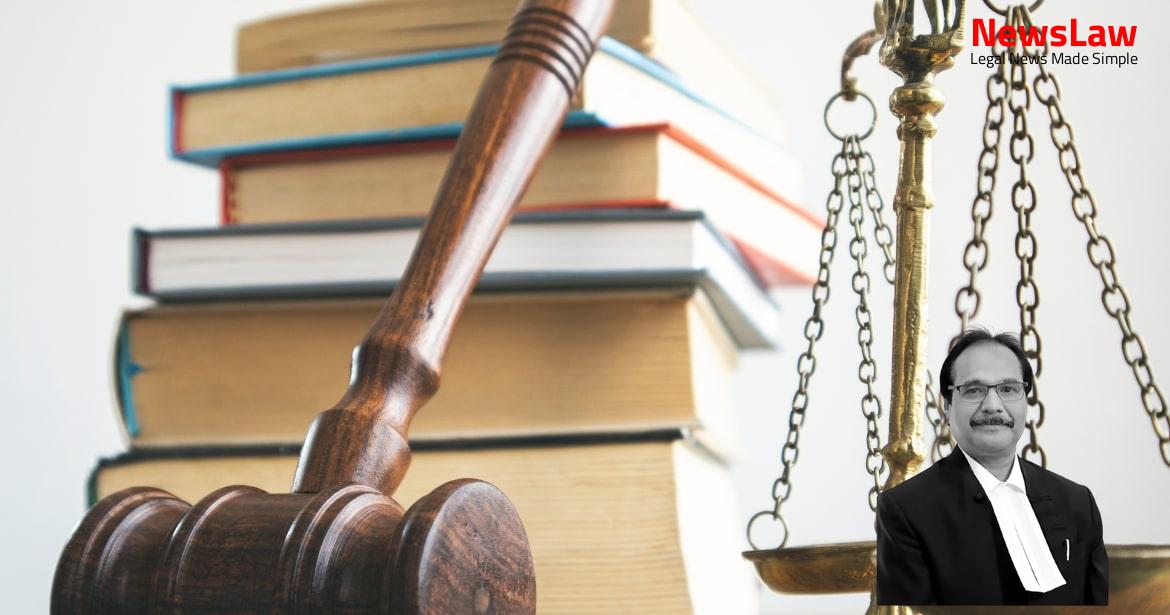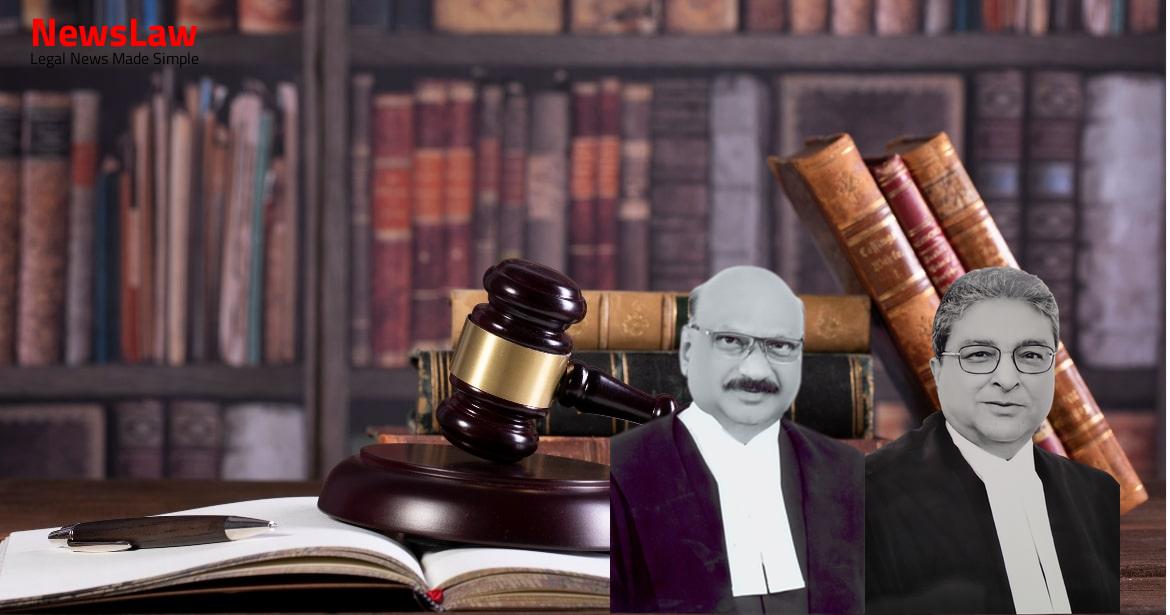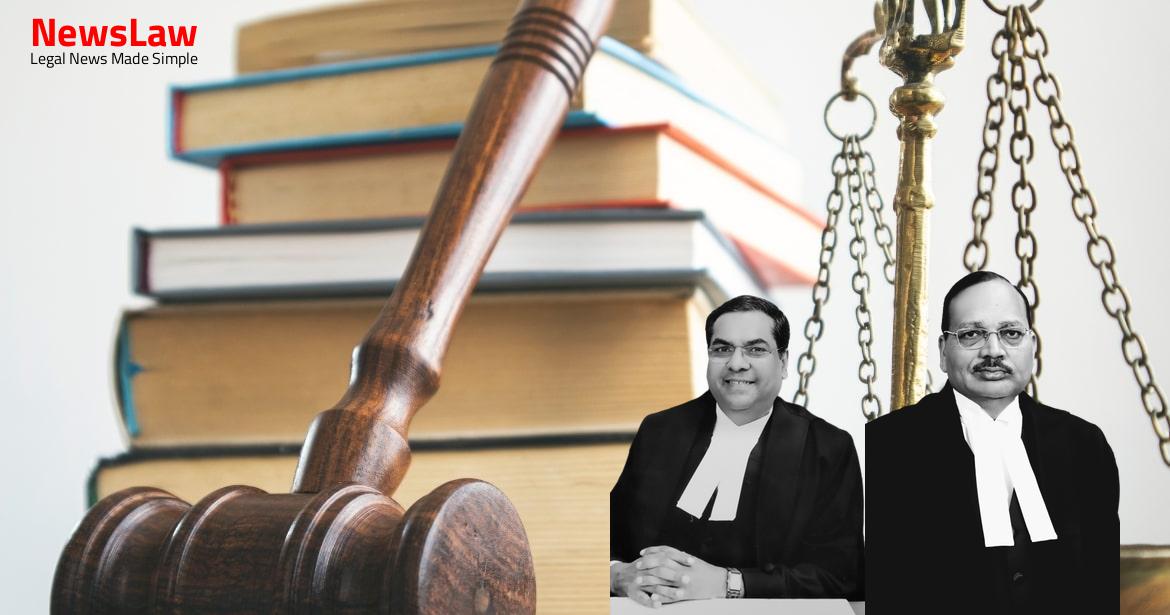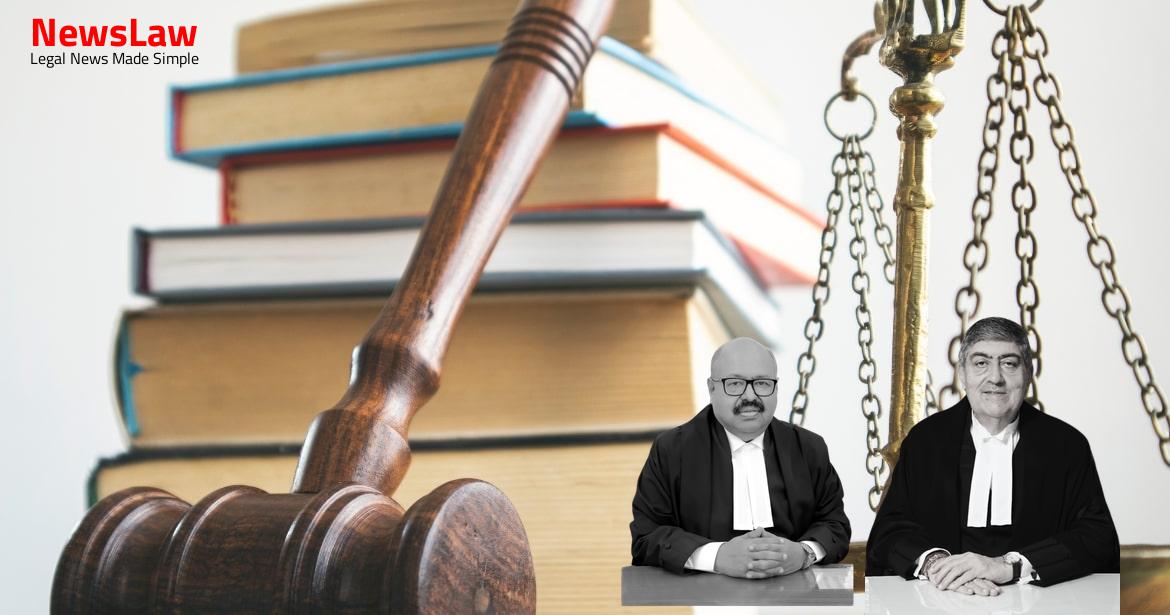In a significant ruling by the Supreme Court of India, a landmark judgment was delivered in the Prem Prakash Bail Application Case, redefining legal principles and rights under the Prevention of Money Laundering Act, 2002. The case involved intricate details of alleged money laundering and property acquisition, leading to a thorough analysis of bail considerations and fair trial procedures. This blog provides a detailed summary of the judgment, shedding light on the nuances of the case and its implications for future legal proceedings.
Facts
- The appellant’s bail application was rejected by the Special Judge on 20.09.2023, leading him to file a bail application before the High Court.
- The appellant sought regular bail in connection with ECIR Case No 5 of 2023 under Sections 3 and 4 of the Prevention of Money Laundering Act, 2002.
- The High Court also declined bail to the appellant who was accused No.8 in the Prosecution Complaint by the Investigating Agency.
- Allegations include the forgery of a sale deed, money transfer discrepancies, and involvement in acquiring proceeds of crime through landed property.
- The appellant, along with other accused persons, is alleged to have conspired in acquiring proceeds of crime in the form of landed property.
- Investigation revealed falsification of original records in the Circle Office, Bargain, Ranchi, and the Office of Registrar of Assurances, Kolkata.
- The appellant is accused of assisting in the fraudulent acquisition of one acre of land and transfer of money to different accomplices and entities.
- The substratum of the allegations leading to the complaint under PMLA do not directly name the appellant as an accused.
- The appellant’s counsel argued that there were contradictions in the statements of the witnesses.
- It was contended that the recovery of the alleged weapon was not reliable as it was planted by the police.
- The prosecution argued that the appellant was a habitual offender and was involved in multiple criminal cases.
- The High Court noted that the seriousness of the offences and the prima facie case against the appellant were reasons for denying bail.
Also Read: Unified Sureties: Balancing Legal Requirements and Practical Challenges
Arguments
- Manish Sisodia reiterated the importance of fundamental rights under Article 21 of the Constitution.
- Prolonged incarceration without being pronounced guilty should not be the punishment without trial.
- Article 21 being a higher constitutional right, statutory provisions should align with it.
- The scope of inquiry under Section 45 of PMLA was discussed, emphasizing that the court need not delve deep into the merits of the case for bail in PMLA.
Also Read: Judgment Summary: Case of Illegal Gratification and Obstruction of Public Servant
Analysis
- The ASG for the Enforcement Directorate presented summaries of statements by individuals mentioned in the complaint.
- The admissibility of the appellant’s statements was a point of contention, with the appellant arguing that his statements made while in custody for another case should not be admissible.
- The appellant, Prem Prakash, had a statement recorded on 04.08.2023 in judicial custody at Birsa Munda Central Jail.
- The statements of co-accused individuals were also considered, with analysis on the relevance and admissibility of these statements.
- The importance of following fair procedures, especially when a person is in custody, was highlighted in the analysis.
- The summary of statements formed a crucial part of the discussion during the analysis of the case.
- Section 45 of PMLA restricts the right of the accused to bail but does not impose an absolute restraint.
- The discretion for granting bail under PMLA is judicial and guided by the principles of law.
- The recent pronouncement in the case of Manish Sisodia (II) vs. Directorate of Enforcement reaffirmed that ‘Bail is the Rule and Jail is the Exception’ even under PMLA.
- The Director and other specified officials have powers similar to those of a civil court under the Code of Civil Procedure, 1908 for various matters including discovery, inspection, enforcing attendance, compelling production of records, etc.
- These officials have the power to summon any person for evidence or to produce records during investigations or proceedings under the Act.
- Officers have the authority to impound and retain records produced before them in any proceedings under the Act.
- Every proceeding under Sections 50(2) and 50(3) is deemed to be a judicial proceeding.
- All persons summoned are required to attend in person or through authorized agents, state the truth, make statements, and produce required documents.
- Protection under Section 25 of the Evidence Act in cases of money-laundering offenses needs to be considered on a case-to-case basis.
- The term ‘police officer’ in Section 25 of the Evidence Act includes persons not only from the regular police force but also those deemed to have powers akin to police officers.
- The test to determine if a person is a ‘police officer’ for the purpose of Section 25 is whether their powers facilitate obtaining a confession from a suspect.
- Confessions to police officers are inadmissible under Section 25 of the Evidence Act.
- Incorporating the principles from past judgments like Vijay Madanlal Choudhary, it is crucial to assess the power relationship and circumstances under which statements are recorded in custody.
- Bail considerations under the PMLA and other Acts must take into account the nature of powers exercised by officers recording statements and the likelihood of a fair trial.
- Relaxing stringent bail conditions under the PMLA may be necessary when trials are prolonged, ensuring the accused’s rights are not unduly restricted.
- The appellant was granted certain facilities in jail, which were contested by the respondents.
- These facilities included a TV, electric kettle, cooking gas, etc.
- The respondents argued that these facilities were not necessary and were a luxury for the appellant.
- The appellant defended the facilities stating that they were provided by the jail authorities.
- The court found that the facilities provided to the appellant were within the permissible limits and did not violate any jail regulations.
Also Read: Landmark Judgment: Resolving Dispute Between Corporation and Contractor
Decision
- The appeal is allowed and the order dated 22.03.2024 of the High Court of Jharkhand is quashed and set aside.
- The Trial Court is directed to release the appellant on bail in connection with ED Case No ECIR No 5 of 2023 upon furnishing bail bonds of Rs. 5 lakh with 2 sureties of the like amount.
- The appellant must surrender his passport with the Trial Court and report to the Investigating Officer every Monday and Thursday between 10 and 11 A.M.
- The appellant is prohibited from influencing witnesses or tampering with evidence.
- Pending applications are disposed of.
Case Title: PREM PRAKASH Vs. UNION OF INDIA THROUGH THE DIRECTORATE OF ENFORCEMENT (2024 INSC 637)
Case Number: Crl.A. No.-003572-003572 – 2024



